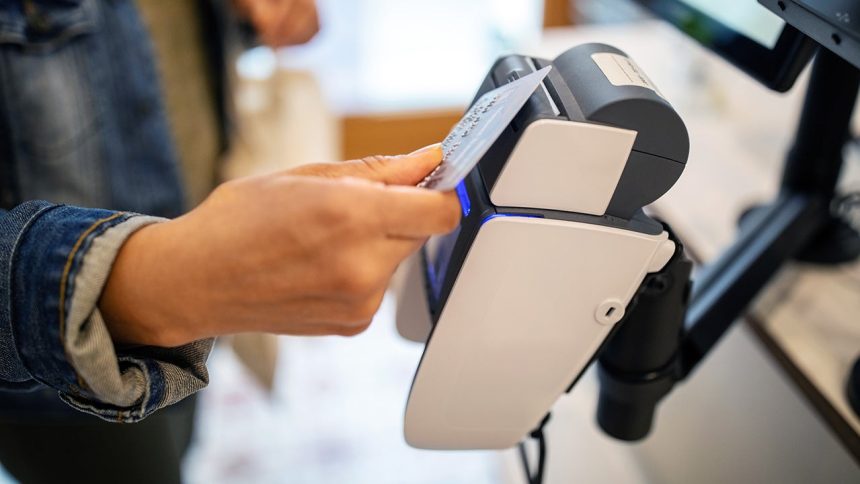Luis Alvarez/Getty Images
Key takeaways
- If you are just starting your credit journey, getting a secured credit card might be a good place to begin.
- Pay your secured card bills on time and maintain low credit utilization to aid your credit score.
- Even if you are able to upgrade to an unsecured credit card after establishing a good credit history, you should think twice before closing your secured card account since it boosts the length of your credit history.
Starting a credit journey looks different for everyone. You could start in college by opening a student card or another kind of card for no credit history. Perhaps you’ll take a bigger leap and start with getting a small loan.
Another popular starting point is to open a secured credit card. As with any first line of credit, a secured credit card will set the precedent for the length of your credit history, an important component of your credit score.
Secured credit cards work similarly to standard credit cards with one distinct difference: the security deposit. Opening a secured credit card requires a deposit, and your required minimum deposit often becomes your credit limit. This deposit serves as collateral for an issuer in case you don’t pay your bill. If the first card you open is a secured credit card, you may need to keep it open longer to boost the length of your credit history, which makes up 15 percent of your FICO credit score.
Let’s take a closer look at what it means to use secured credit cards and how long to keep them around.
How long should you keep a secured card?
As your credit score increases over time with responsible use of your secured card, you may want to upgrade to an unsecured card with more rewards and no deposit required. Even if you do outgrow your secured card and stop using it, there’s still value in keeping the card open.
The age of your credit accounts matters when determining your credit score. The longer your credit history exists, the better this part of your credit score will be.
Therefore, if your secured card is the oldest existing credit line you have, it may, at least temporarily, ding your credit score to close it. That said, some secured cards have extra fees in addition to their initial deposits. If you have to pay annual fees or other maintenance fees on your secured card, it may be better to close it to cut down on any unnecessary expenses.
How secured cards affect your credit score
As with any credit card, opening a secured card will require an application and an approval process. Once you apply, your credit score may dip temporarily as a result of a hard inquiry on your credit report. Despite this small decline, your score will increase over time as long as you use your secured credit card responsibly.
Responsible card use includes keeping your credit utilization low, paying your bill on time, and paying it in full whenever possible. Consistent, responsible practices could get you an upgrade to an unsecured credit card in no time.
Think twice before closing a secured credit card account
People with limited credit history could end up in a bind when it comes to deciding whether to keep a secured credit card open. Closing a secured card too early, especially if it’s your first line of credit, could ding your credit score.
An alternative to closing your secured credit card is to upgrade to an unsecured card with the same issuer. Upgrading to the unsecured version of your secured credit card will get you the extra benefits that come with an unsecured card and return your deposit to you, but you will keep the same account. This prevents another hard inquiry on your report and doesn’t affect your credit history length. Also, the more credit you have available to you, the better it will be for your credit utilization ratio, another major component impacting your credit score.
When to upgrade to an unsecured credit card
You can start considering an upgrade to an unsecured credit card once you’ve achieved a fair or good credit score. Improving your credit score could take up to a year or more, depending on your personal spending habits. The best way to work yourself up to an upgrade is to pay your bills on time and in full. Keep an eye on your credit report, and be sure to dispute any errors that could derail your credit-building efforts.
Many secured card issuers will automatically consider your account for an unsecured card upgrade after a certain period of consistent responsible activity with the secured card.
The bottom line
Your secured credit card is a tool that you can make work for you if you leverage it in the right way. Use your secured credit card responsibly over time to build up your credit score. Once you’ve reached a fair to good score, look into upgrade options offered by the same issuer if you can. Finally, consider keeping your secured credit card open, even if you don’t use it, to boost your credit history and credit utilization ratio.
Read the full article here
















